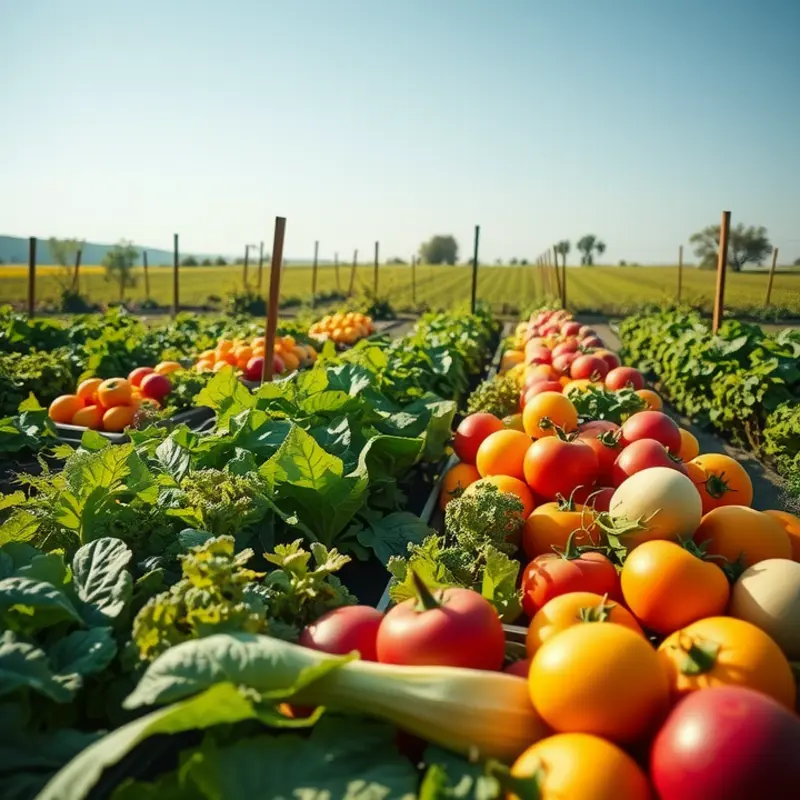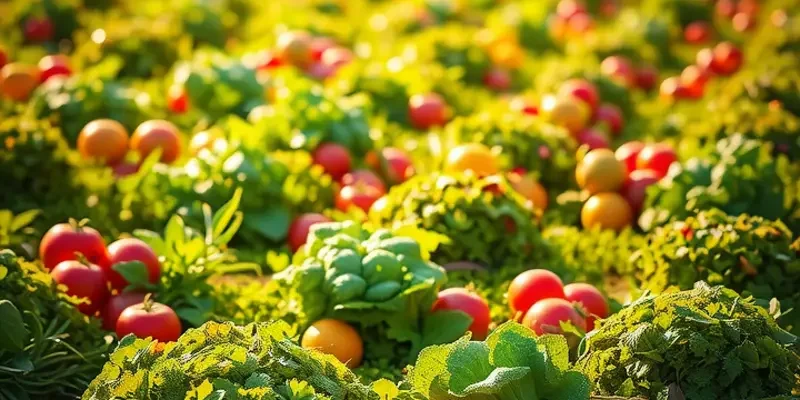Food waste is a silent enemy lurking in our kitchens and landfills. It’s a pressing issue that not only affects our resources but also the environment. By discarding edible food, we contribute to landfill overflow, greenhouse gas emissions, and the depletion of essential resources. Making conscious food choices can help combat this issue. Together, we can sculpt a more sustainable future for our planet by embracing practices that minimize food waste and promote ecological balance.
The Ripple Effect of Food Waste

Food waste is a pressing yet often overlooked issue that extends beyond overflowing landfills. Its impact permeates through every layer of our environment, exacerbating climate change and straining limited resources. One of the most significant consequences of food waste is the emission of greenhouse gases. When food waste decomposes in landfills, it produces methane, a potent greenhouse gas with a climate change potential far surpassing that of carbon dioxide.
This methane accrues due to the anaerobic decomposition that occurs when organic waste is buried under layers of garbage. Unfortunately, despite being a significant emitter, methane from food waste in landfills often escapes regulatory frameworks and remains underaddressed in climate action plans. This oversight presents a critical need for enhanced awareness and intervention.
Waste also translates to wasted resources that were employed in the production, processing, and transportation of food. Consider water usage: vast quantities of this precious resource are invested in agriculture. In fact, agriculture accounts for about 70% of global freshwater use. When we waste food, we effectively squander these water resources as well, along with the energy inputs required for irrigation, processing, and transport.
Moreover, food waste also depletes vital nutrients that could otherwise enrich our soils if managed through composting. Composting not only reduces methane emissions but also closes the nutrient loop. This process converts scraps into nutrient-rich soil, enhancing soil fertility and reducing the need for chemical fertilizers.
Deforestation is another indirect impact of food waste. As we clear more land to meet the demands of food production, the associated environmental costs, such as loss of biodiversity and carbon sequestration capacity, escalate. Reducing food waste can alleviate the pressure to convert natural habitats into farmland, preserving crucial ecosystems.
Transportation also holds a significant share of the resources expended in the food supply chain. The fuel and emissions involved in moving food from farms to tables contribute to the overall carbon footprint. By reducing food waste, we can lessen the need for transporting excess food items, thereby cutting down emissions.
There is an intricate connection between our food choices and the environment. Adopting a diet that minimizes waste can profoundly impact environmental sustainability. For inspiration, one might consider incorporating food preparation practices that maximize ingredient utilization, such as those found in creative uses of ingredients in dishes like this avocado-based dish.
Understanding the ripple effect of food waste empowers individuals to make informed decisions. By recognizing the environmental costs embedded in every meal, we can collectively take steps to mitigate climate change impacts. Acting responsibly with our food choices helps shape a more sustainable future for our planet.
Taking Action: Reducing Food Waste in Your Life

Food waste is an issue we can tackle starting from our kitchens. With a few adjustments in habits and awareness, you can make a significant difference. Let’s delve into practical strategies.
Meal Planning: Planning your meals is the cornerstone of minimizing food waste. Dedicate a day to map out your meals for the week. Create a detailed shopping list and stick to it. This prevents impulsive buys and ensures you only purchase what you need. Stay flexible with your plans to incorporate leftovers or unexpected items. Utilizing seasonal produce can also enhance your meal planning, offering freshness and reducing costs.
Proper Food Storage: Understanding how to store food properly prolongs its shelf life. For fresh produce, learn the best practices—fruits like apples may emit ethylene gas, hastening spoilage in other fruits. Keep them separate. Leafy greens last longer if washed and stored with a damp towel. For cooked meals, consider airtight containers to maintain freshness and prevent contamination. Freezing perishable items like bread or cooked grains can help extend their usability.
Creative Cooking Ideas: Embrace the art of transforming leftovers into new meals. Stale bread can become breadcrumbs or croutons, while cooked vegetables can enhance a stock or a soup. Websites and blogs offer a plethora of inventive recipes designed to use common leftovers. Visit this Mediterranean Chickpea Salad recipe for a fresh and nutritious idea using simple ingredients.
Mindful Consumption: While dining, serve smaller portions to reduce plate waste. It’s always possible to serve more, but not everything can be reused once served. Embracing this practice ensures everyone eats enough without excess waste.
Composting: Not all scraps should go to waste. Start a small composting system, even if you live in an urban area. Vegetable peels, coffee grounds, and eggshells can return to the earth, enriching soil for future plants.
Sharing and Donating: If you find yourself with an excess after a bountiful grocery run or party, consider sharing with friends or donating to local food banks. Many communities have resources to facilitate redistribution to those who need it.
Each step you take towards reducing food waste not only stretches your budget but also contributes profoundly to environmental sustainability. Integrating these practices into your daily routine encourages a healthier relationship with food and reinforces our commitment to the planet.
Final words
By understanding the significant repercussions of food waste on our environment, we can cultivate a fresh perspective on our food choices. Every action counts, and simple changes in our daily habits can yield substantial benefits for our planet. Whether it’s through careful meal planning, composting, or advocating for sustainable local sources, we have the power to make informed decisions that lower our ecological footprint. Let’s lead the charge in creating a more sustainable future by cherishing every bite and minimizing waste. Together, we can nourish both our bodies and the Earth.








